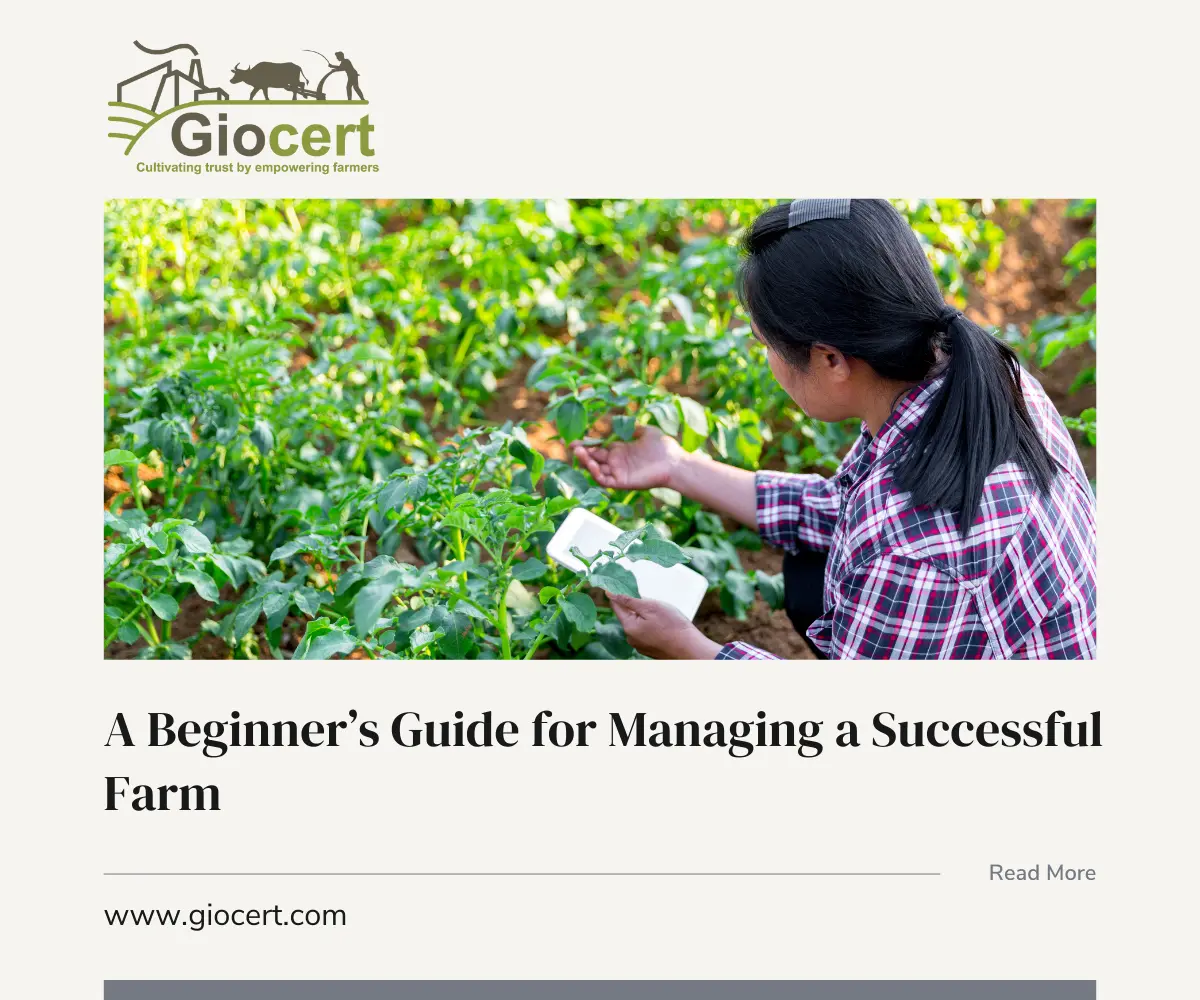Introduction to Giocert Ventures and Its Infrastructure for Agri Products
As agriculture continues to evolve, the demand for efficient, reliable, and sustainable infrastructure solutions in the agricultural supply chain has grown exponentially. At Giocert Ventures and Innovations Pvt. Ltd., we understand the complexities involved and have built a comprehensive infrastructure designed to cater to the needs of the agricultural industry. Our infrastructure facilities for finest agri products focus on creating an integrated supply chain that operates with unmatched precision, ensuring efficiency and the highest standards of quality.
Our vision is to provide top-tier infrastructure solutions that optimize the agricultural supply chain from start to finish. Whether you’re looking to improve processing, packaging, or distribution, our facilities have the capacity to handle it all, guaranteeing the finest agri products reach you in perfect condition.
Giocert Ventures’ Infrastructure Facilities: The Key to Efficient Agricultural Supply Chains
Giocert Ventures offers a wide range of infrastructure services that contribute to the strength and efficiency of agricultural supply chains. Here are the essential components that make our infrastructure stand out:
1. State-of-the-Art Processing Facilities
Our processing facilities are equipped with advanced technology to ensure the highest quality of agri products. From cleaning and sorting to packaging, we utilize modern processing techniques that maintain the integrity, freshness, and nutritional value of the products. Every product is handled with care, ensuring it meets global standards.
2. Advanced Cold Storage Solutions
For perishable agri products like fruits, vegetables, and dairy, we provide cutting-edge cold storage solutions. Our facilities are designed to maintain the perfect temperature, extending shelf life and minimizing waste. This ensures that our customers receive only the freshest and highest quality products.
3. Strategic Warehouse & Distribution Network
Our strategically located warehouses are equipped with the latest inventory management systems that ensure seamless storage and handling of products. From there, our efficient distribution network ensures that agri products reach their destinations on time, without compromising on quality. Whether it’s local or international delivery, we make sure every shipment is handled efficiently.
4. Commitment to Sustainability
Sustainability is a key part of our approach to infrastructure. At Giocert Ventures, we integrate sustainable practices across all our facilities, from energy-efficient systems to waste reduction strategies. Our focus on sustainability helps us reduce environmental impact while still providing the highest quality agricultural products.
5. Embracing Agri-Tech Innovation
To ensure we remain at the forefront of the agricultural industry, we continuously invest in agri-tech innovations. From AI-driven supply chain forecasting to IoT-based real-time monitoring systems, we leverage the latest technologies to improve operational efficiency, reduce errors, and enhance the customer experience.
6. Reliable Transport and Logistics Solutions
The transport of agri products requires special care and attention to maintain product quality. Our transport network is designed to handle a wide variety of products, including perishable items. With temperature-controlled vehicles and a focus on timely deliveries, we ensure that your products are transported under optimal conditions.
Why Giocert Ventures is the Best Choice for Agricultural Supply Chain Needs
When it comes to infrastructure facilities for finest agri products, Giocert Ventures offers a level of service that is unmatched in the industry. Here are a few reasons why we are the preferred partner for agricultural supply chains:
- Comprehensive Solutions for All Aspects of Supply Chain:
From production to processing, packaging, and logistics, Giocert Ventures handles every element of the agricultural supply chain with care and precision, ensuring smooth operations at every step. - Uncompromising Quality Control:
Our facilities are designed to meet international quality standards. We adhere to rigorous quality control processes to ensure that every product leaving our facilities is of the highest standard. - Punctual Deliveries:
We understand the critical nature of timely deliveries. Our robust logistics and distribution network ensures that your products arrive on time, every time. - Scalable Infrastructure for Growing Needs:
As your business expands, so does our capacity to meet your increasing demands. Our infrastructure is built to scale, ensuring we can adapt to changes in your supply chain needs. - Customer-Focused Approach:
We pride ourselves on offering personalized services tailored to our customers’ unique needs. We work closely with clients to understand their requirements and deliver customized solutions that fit their business models.
Sustainable Practices for a Better Future in Agriculture
Sustainability is a fundamental value at Giocert Ventures. We are committed to minimizing the environmental impact of our operations by implementing green practices across our infrastructure. This includes reducing energy consumption, using renewable resources, and employing recycling programs that support sustainable agriculture. By doing so, we not only help preserve the planet but also contribute to the long-term viability of the agricultural industry.
Conclusion
A well-structured infrastructure is the cornerstone of a successful agricultural supply chain. At Giocert Ventures, we have built an advanced infrastructure tailored to meet the complex needs of the agricultural industry. From processing and cold storage to logistics and sustainable practices, our facilities are designed to ensure that the finest agri products are delivered efficiently and reliably.
Whether you are looking for top-quality processing, storage, or logistics solutions, Giocert Ventures is your ideal partner in navigating the agricultural supply chain. Our infrastructure facilities for finest agri products are designed to optimize every aspect of the supply chain, providing you with the reliability and quality you need.




